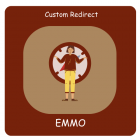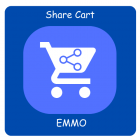How to Resolve Duplicate Content Issues in Magento 2

How to Resolve Duplicate Content Issues in Magento 2
Duplicate content can negatively impact SEO by confusing search engines about which page to rank. Magento 2 sites often face this issue due to technical settings or content structure. Here’s how you can address common sources of duplicate content in your Magento store.
Table Of Content
Common Causes of Duplicate Content in Magento 2
Multiple URLs for the Same Product or Category
One of the most common causes of duplicate content in Magento 2 is the presence of multiple URLs leading to the same product or category. For example, a product might be accessible via different categories, creating different URLs that lead to the same page. This confuses search engines, as they can't determine which URL is the original or preferred one.
HTTP vs. HTTPS
Another issue arises from using both HTTP and HTTPS protocols. Although these are technically two different URLs for the same content, search engines treat them separately. To avoid duplicate content, ensure that your site uses one protocol consistently and redirects the other version to the preferred one.
WWW vs. Non-WWW URLs
Similarly, accessing a website with or without the "www" prefix can result in duplicate content. For instance, both https://www.example.com and https://example.com might display the same content. It's essential to choose one version and redirect the other to it.
Layered Navigation Filters
In Magento 2, when users apply filters to a category page (such as color, size, or price), the URL is modified to reflect the filtered results. Each filter variation is treated as a new URL by search engines, leading to duplicate content issues unless handled properly.
URL Rewrites
Magento 2 offers URL rewrites for managing changes in URL structure. However, if not configured correctly, old URLs may still be accessible, creating duplicate content even after redirecting to a new URL.
In conclusion, while canonical tags are just one element of SEO, they play a critical role in managing duplicate content and preserving your search engine rankings. Implement them properly, and you'll safeguard your Magento 2 store's visibility and avoid penalties.
The SEO Impact of Duplicate Content
Diluted Search Rankings
Search engines may struggle to determine the most authoritative URL when faced with multiple versions of the same page. This can lead to diluted rankings and make it difficult to rank any of the pages highly.
Risk of Penalties
Search engines, particularly Google, may penalize websites with duplicate content. These penalties can range from a drop in search engine rankings to complete removal from search indexation.
Wasted Crawl Budget
Every website has a "crawl budget," which is the amount of time search engines allocate to crawling and indexing pages. Duplicate content can waste this budget by directing crawlers to multiple versions of the same page, potentially preventing them from indexing more important pages.
Tip
To enhance your eCommerce store’s performance with Magento, focus on optimizing site speed by utilizing Emmo themes and extensions. These tools are designed for efficiency, ensuring your website loads quickly and provides a smooth user experience. Start leveraging Emmo's powerful solutions today to boost customer satisfaction and drive sales!
Solutions to Fix Duplicate Content in Magento 2
1. Use Canonical Tags
A simple and effective way to address duplicate content is by adding canonical tags to your pages. These tags tell search engines which version of the page is the "original" or most important, helping to consolidate ranking signals.
2. Set Up 301 Redirects
For URLs that have changed, implement 301 redirects. This ensures that users and search engines are directed to the updated URL, preventing multiple versions of the same page from being indexed.
3. Configure Robots.txt
Modify your robots.txt file to prevent search engines from crawling certain pages that might be causing duplicate content issues. This can help focus your crawl budget on more important pages.
4. Regular Content Audits
Perform regular content audits to identify and fix duplicate content. You can use tools like Screaming Frog or Google Search Operators to find instances where your content may be duplicated on other pages or websites.
By implementing these strategies, you can effectively reduce or eliminate duplicate content issues, improving your site's SEO performance and ensuring better visibility in search results.
For more detailed guidance on fixing duplicate content in Magento 2, check out additional resources on the topic.
Magento 2 Canonical URL Extensions: A Better Solution to Duplicate Content
Magento 2 offers basic tools for handling canonical URLs, but these tools often fall short when it comes to more complex needs, such as managing duplicate content in paginated or filtered pages. By default, Magento 2 lacks options for canonical URL configuration on these pages, requiring custom technical setups that may not be ideal for everyone. A more comprehensive solution is to use a Magento 2 canonical URL extension, which simplifies managing URL tags across your store.
Extensions like the FME Magento 2 Canonical URL Extension provide a complete solution. These tools give you the flexibility to manage canonical tags for product, category, CMS pages, and even filtered or paginated pages. This approach is far more efficient, offering greater control and reducing the risk of duplicate content harming your SEO efforts.
For example, the FME extension lets you add canonical URLs to layered navigation and pagination, preventing issues like duplicate content across multiple filter combinations or pagination pages. This feature alone can boost your site's crawlability and SEO potential by ensuring search engines always reference the correct version of a page.
Other benefits of using a dedicated extension include:
- The ability to set cross-domain canonical URLs for different store views or individual products.
- Support for advanced settings like adding
rel=next/prevlinks for pagination. - The option to specify canonical URLs for individual product attributes or custom pages.
If you're looking to avoid manual configurations and technical complexities, investing in an extension offers a simpler, more streamlined solution for handling canonical tags across your store
FAQs
What Are Duplicate Content Issues in Magento 2?
Duplicate content in Magento 2 arises when the same product or page is accessible through multiple URLs, often due to filtering, sorting, pagination, or session IDs. This confuses search engines, which may have difficulty determining which version of a page to rank, ultimately hurting SEO performance.
How Do Canonical Tags Fix Duplicate Content Issues in Magento 2?
Canonical tags help search engines identify the preferred version of a page. When applied correctly, they consolidate SEO efforts by pointing to the main URL, even if duplicates exist due to filters or pagination. This ensures that search engines do not penalize your site for duplicate content.
What Is the Problem with Pagination in Magento 2?
Pagination in Magento 2 can cause SEO problems if search engines index paginated pages rather than the main category page. This can waste crawl budget and negatively affect rankings. Paginated pages often duplicate content, and improper handling can confuse search engines.
How Can Canonical Tags Help with Pagination in Magento 2?
By adding canonical tags to paginated pages, you guide search engines to focus on the main page of a category, rather than indexing each paginated page separately. This improves crawl efficiency and prevents penalties for duplicate content.
Why Do HTTPS and WWW Versions of a Page Cause SEO Issues?
When your website has multiple versions, such as HTTPS vs. HTTP or www vs. non-www, search engines may treat them as separate pages. This creates duplicate content issues, splitting SEO value between versions and reducing your overall rankings.
How Do Canonical Tags Resolve HTTPS and WWW Duplicate Content Issues?
Canonical tags specify the preferred version of a page. By applying them to the HTTPS or www versions, you tell search engines which one to index, avoiding duplicate content issues and improving overall site ranking.
Why Is It Important to Use Canonical Tags on Category Pages?
Category pages often list the same products across different categories. Without canonical tags, search engines may view these as duplicate content. By using canonical tags, you ensure that search engines focus on the most relevant version of the category page, boosting SEO and visibility.
How Do CMS Pages Affect SEO and How Can Canonical Tags Help?
CMS pages, like the homepage or 'About Us' page, can cause SEO problems if treated as duplicates. Applying canonical tags consolidates SEO value and ensures the correct page version is ranked, preventing SEO dilution from multiple pages with similar content.
What Is the Role of Third-Party Extensions in Managing Canonical Tags in Magento 2?
While Magento 2 has basic canonical tag functionality, third-party extensions offer greater flexibility and automation. Extensions help manage canonical tags for product, category, and CMS pages, making it easier to handle duplicate content issues and optimize your store's SEO.









